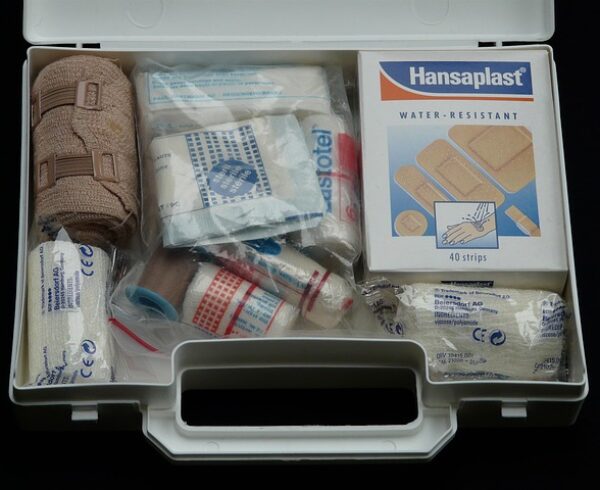Medicare fact finder
Each time a Medicare agent meets a new client a Medicare fact finder is a great way to address what they want and what they need. This is a great tool to help you make personalized suggestions for coverage.
If you are in the senior market, your fact finder should focus on Medicare coverage. It may also include additional options like hospital indemnity, life products or other relevant products you offer. You should design your fact finder to fit your client’s needs and the services that you have to offer. The only way to know what the client is looking for is to ask questions.
We have a few examples of Medicare fact finder questions below:
1. Do you understand the different parts of Medicare
This question is very important to ask. Clients need to understand the parts of Medicare and how they work to know what type of coverage they want and need. Your job is to make sure they know about all the coverage options available and make an informed decision. This includes what is covered by Part A, Part B, Part C and Part D.
2. Can you tell me what you like and don’t like about your current Medicare coverage
When you ask this question as part of your fact finder, you gain valuable insight into what type of coverage the client is looking for. This will help sort out which benefits are important to them, and which are not. This can be very useful in sorting out MA/MAPD plan benefits as there are so many to choose from and they offer different benefit packages.
3. How often do you see a doctor or specialist
The answer to this question can help decide if a Medicare Supplement or a Medicare Advantage plan is a better option for your client. That is a reason to include it in your Medicare fact finder. Many of your clients’ plan choices will come down to simple mathematics. Medicare Advantage plans require a copayment for visits to either PCPs or specialists. The amount of each copay can make a difference in your client’s budget.
4. Are there doctors and medical facilities that you like to use for your health care needs
If a client uses medical care from several providers on a regular basis, they may have a difficult time finding a Medicare Advantage Plan that all their chosen providers participate with. It is your job to be sure they can continue to use the providers they want and are aware of the cost for each visit. In some cases, an MAPD plan may not be the best option for the client.
5. Find out if the client is currently taking any prescription medications and which pharmacy they like to use
Please be aware, it is up to the client if they want to disclose this information. However, it is important to help them find the best coverage options for their needs and can be very costly if they make an ill-informed decision. Each MAPD and PDP plan has a specific formulary. This means they cover each medication differently. There can be very large differences in the cost for prescriptions that may place a burden on your clients when they are trying to maintain their health.
The cost of each prescription also depends on the pharmacy your client chooses to use. This must be explained to them as well. Carriers for Part D coverage often have preferred network pharmacies that can save the client money when they fill prescriptions there.
6. Does your client have any chronic health conditions
There are specific Medicare Advantage plans that provide coverage of certain chronic health conditions, such as ESRD. Although they cannot enroll in most Medicare Advantage plans, these SNP plans cover their specific needs, and they cannot be denied coverage for pre-existing conditions.
7. Do they travel often or have a home in another state
This may be an important question to include in you Medicare fact finder. Medicare supplement plans are good in any doctor’s office or facility that accepts Medicare assignment. On the other hand, Medicare Advantage plans have a local provider network and clients may not find an in-network provider when they spend months living out of their home state. This can end up costing quite a bit out of pocket for care. It is important to check the benefits of each plan for travel and residency coverage.
8. Are they covered through a former employer or other organization
In some cases, client have retiree plans that work with Medicare to provide coverage for health care needs. If this is the case, the client should check with their company’s benefits coordinator to see how a Medicare plan affects their retiree coverage and how they work together.
These are just a few possible questions to use. It is important to decide which questions to add or subtract based on your personal preferences.
A few more thoughts
Let your client know what you are doing and why. This will help them understand that you see each client as an individual and will do your best to fill their personal health coverage needs. It is best to finish the questions and go over the answers before you try and make any sales presentation to the client. Making the suggestions at the end will let the client know you are listening to every answer and using all the information to make the most informed suggestions.














Leave a Comment